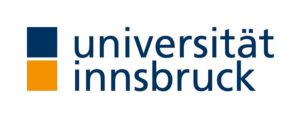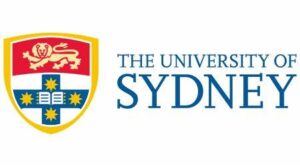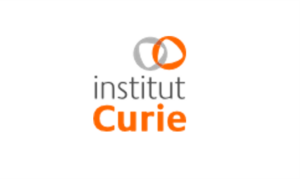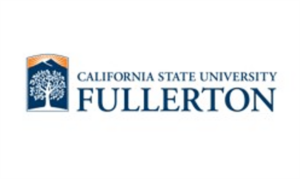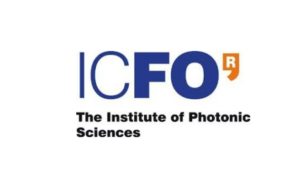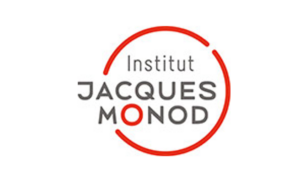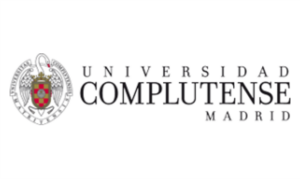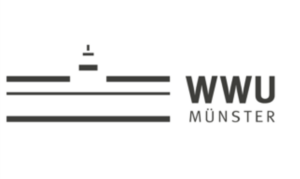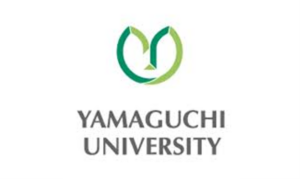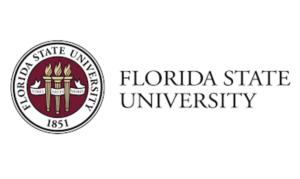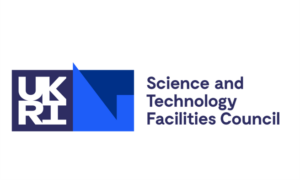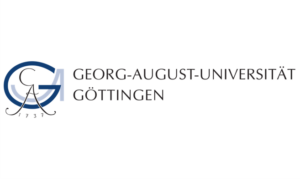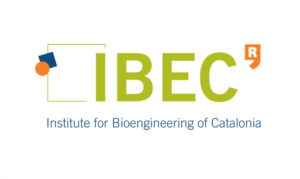Customer stories
No Results Found
The page you requested could not be found. Try refining your search, or use the navigation above to locate the post.
Stochastic force dynamics generated by a Chlamydomonas microswimmer study with IMPETUX’s exclusive patented technology
Stochastic force dynamics generated by a Chlamydomonas microswimmer in Optical Tweezers studied using the photon momentum method: Here we share an interesting publication from Dr. Ahmed Lab from the Department of Physics of the California State University...
Rheological measurements to understand Cell-ECM interactions with SENSOCELL
Last week we could read a fascinating project story related with one of our customers. The project, led by Pere Roca-Cusachs at IBEC and entitled: Mechano·Control: mechanical control of biological function, aims to understand and control cellular mechanics from...
To deep more into what the IMPETUX technology users are achieving, here we share a list of their latest publications:
February 2025
Targeting ELOVL6 to disrupt c-MYC driven lipid metabolism in pancreatic cancer enhances chemosensitivity
García García, A., Ferrer Aporta, M., Vallejo Palma, G. et al.
Nature Communications (2025): https://doi.org/10.1038/s41467-025-56894-8
A newly published scientific article presents groundbreaking findings on ELOVL6, a fatty acid elongase regulated by c-MYC, as a potential therapeutic target for pancreatic ductal adenocarcinoma (PDAC). With a survival rate of only 12%, PDAC remains one of the deadliest cancers, highlighting the urgent need for new treatment strategies.
The study, conducted using PDAC mouse models and cell lines, demonstrates that inhibiting ELOVL6 reduces tumor cell proliferation and migration by altering membrane lipid composition. These changes affect membrane rigidity and permeability, impacting key processes such as pinocytosis and improving Abraxane uptake. The findings reveal that combining ELOVL6 inhibition with Abraxane treatment significantly enhances therapeutic effectiveness, slowing tumor growth and extending survival.
A key aspect of the research was the use of the IMPETUX optical tweezers system, which allowed scientists to analyze how changes in fatty acid composition influence membrane properties. This innovative approach provides new insights into cancer metabolism and drug delivery, reinforcing ELOVL6 as a promising target for future PDAC treatments.
The full study is now available in here.
January 2025
Periodic Obstacles Regulate Membrane Tension Propagation to Enable Localized Mechanotransduction
Frederic Català-Castro, , , ,
Biorxiv preprint (2025): https://doi.org/10.1101/2025.01.14.632796
Exciting new preprint on membrane tension propagation in C. elegans axons. A collaborative work between Padmini Rangamani (UC San Diego) and Michael Krieg (ICFO) labs, combined mathematical modeling and optical trapping using SENSOCELL optical tweezers to reveal how tension spreads in mechanosensory neurons allowing the observation of both fast, localized tension peaks and slower, long-range tension propagation. This work leveraged the precision and versatility of Impetux's SENSOCELL optical tweezers for tether extrusion and precise membrane tension measurements.
Read the full article here.
January 2025
Measuring age-dependent viscoelasticity of organelles, cells and organisms with time-shared optical tweezer microrheology
Frederic Català-Castro, Santiago Ortiz-Vásquez, Carmen Martínez-Fernández, Fabio Pezzano, Carla Garcia-Cabau, Martín Fernández-Campo, Neus Sanfeliu-Cerdán, Senda Jiménez-Delgado, Xavier Salvatella, Verena Ruprecht, Paolo-Antonio Frigeri & Michael Krieg
Nature Nanotechnology (2025): DOI: 10.1038/s41565-024-01830-y
The paper introduces TimSOM (TIMe-Shared Optical tweezers Microrheology), a single-laser optical tweezer technique for rheology assays in biological samples. It demonstrates how TimSOM simplifies the study of viscoelasticity in cells, organelles, and tissues. Key findings include:
- Protein Condensates: Viscoelasticity increases inside matured condensates, linked to neurodegenerative disease mechanisms.
- Zebrafish Cells: Nucleus-cytoplasm interfaces are stiffer than cytoplasm, while nucleoplasm is unexpectedly soft.
- C. elegans: Tissue viscoelasticity changes with age and aging-related mutations.
You can find the published article here.
August 2024
Accessing activity and viscoelastic properties of artificial and living systems from passive measurement
Till M. Muenker, Gabriel Knotz, Mattias Krüger, Timo Betz
Nature Materials (2024): https://doi.org/10.1038/s41563-024-01957-2
Check this breaking publication from Betz-Lab at the Geord-August_Universität Göttingen in Nature Materials where Till Muenker and coworkers use our force detection system to demonstrate the use of a purely passive measurement of intracellular viscoelasticity.
Researchers have developed a novel, non-invasive technique to analyze the active mechanics and viscoelastic properties of living systems. By utilizing a parameter called "mean back relaxation," they can quantify non-equilibrium dynamics and energy generation from passively observed particle trajectories. This breakthrough method offers a new way to study complex biological processes without the need for invasive approaches, providing valuable insights into cellular organization and material properties.
You can find the published article here.
July 2024
Nanoscopic wetting behaviour of single oil droplets on a fibre
Ophelie Squillace, Ting Zhang, Lia Argentou, Andrew Ward, Zhenyu J. Zhang
Colloids and Surfaces A: Physicochemical and Engineering Aspects: https://doi.org/10.1038/s41556-023-01247-0
A new work using our Lunam Force Sensor led by UK researchers (from the University of Birmingham and the Central Laser Facility at the Rutherford Appleton Laboratory) has been published in Colloids and Surfaces A Journal.
You can find the published article here.
Our sensor was used to measure silicone droplets-microfiber interactions. Researchers used our Lunam Force Sensor to quantify the surface interaction and wetting of liquid droplets on microscopic fibres.
May 2024
Intracellular mechanical fingerprint reveals cell type specific mechanical tuning
Till M. Muenker, Bart E. Vos, Timo Betz
Physics of Living Systems (2024): https://doi.org/10.7554/eLife.97416.1
Münker and colleagues use optical tweezers to apply oscillatory forces to glass beads that are endocytosed or phagocytosed by cells, covering a frequency range from approximately 1 to 1000 Hz. This setup allows them to probe the cytoplasmic properties of six different cell types across various time scales. For force measurements, they utilize the Impetux force measurement module, which enhances the precision of the optical tweezers in detecting forces at the microscopic level. Through statistical methods and principal component analysis, they identify six key parameters (from power law fits) that describe both the passive and active mechanical properties of cells. These parameters help characterize the viscous and elastic nature of the cytoplasm, along with the active energy driven by cellular metabolism. Overall, the study presents high-quality, cutting-edge work, though there are some limitations related to how the beads are internalized by the cells.
You can find the published article here.
October 2023
A MEC-2/stomatin condensate liquid-to-solid phase transition controls neuronal mechanotransduction during touch sensing
Neus Sanfeliu-Cerdán, Borja Mateos, Carla Garcia-Cabau, Frederic Català-Castro, Maria Ribera, Iris Ruider, Montserrat Porta-de-la-Riva, Stefan Wieser, Xavier Salvatella, Michael Krieg
Nature Cell Biology -2023: https://doi.org/10.1038/s41556-023-01247-0
This recently published in Nature Cell Biology study reveals the mechanism by which MEC-2 protein condensates in touch receptor neurons can change from a liquid to a solid-like state. This transition alters their role in transmitting mechanical forces. The study, conducted by researchers from ICFO and IRB Barcelona, focuses on the importance of understanding these transitions in protein condensates to develop innovative therapies and treatments. THe IMPETUX's Optical tweezers system SENSOCELL was used to study the mechanical properties of the purified protein condensates and investigate how they change over time.
You will find a wide and interesting explanation on the findings and implications at the ICFO website: here
You can also find the published article here.
October 2023
Mechanical stress confers nuclear and functional changes in derived leukemia cells from persistent confined migration
Ana de Lope-Planelles, Raquel González-Novo, Elena Madrazo, Gracia Peralta-Carrero, María Pilar Cruz Rodríguez, Héctor Zamora-Carreras, Verónica Torrano, Horacio López-Menéndez, Pedro Roda-Navarro, Francisco Monroy & Javier Redondo-Muñoz
Cellular and Molecular Life Science: https://doi.org/10.1007/s00018-023-04968-5
In this work, the authors discuss the importance of nuclear deformability in cell migration. They analyze how persistent migration through physical barriers can lead to permanent changes in cell behavior and nuclear structure. Their findings suggest that mechanical compression during persistent cell migration may contribute to stable nuclear and genomic alterations, potentially influencing genetic instability and cellular heterogeneity in aging diseases and cancer.
You will find the article here.
October 2023
Time-shared optical tweezers for active microrheology inside cells
Frederic Català-Castro, Paolo Antonio Frigeri, Santiago Ortiz-Vásquez, Carmen Martínez-Fernández, Michael Krieg
Proceedings Volume 12649, Optical Trapping and Optical Micromanipulation XX; 126490N (2023) https://doi.org/10.1117/12.2681989
Event: SPIE Nanoscience + Engineering, 2023, San Diego, California, United States
In this presentation the authors discuss the use of non-invasive, optical tweezers active microrheology to gain insights into the mechanobiological principles governing cellular processes
You will find the conference presentation here.
September 2023
The laminin-keratin link shields the nucleus from mechanical deformation and signaling
Zanetta Kechagia, Pablo Sáez, Manuel Gómez-González, Martín Zamarbide, Ion Andreu, Thijs Koorman, Amy E.M. Beedle, Patrick W.B. Derksen, Xavier Trepat, Marino Arroyo, Pere Roca-Cusachs
Nature Materials: https://doi.org/10.1101/2022.03.01.482474
In this work, the labs of Pere Roca-Cusachs and Xavier Trepat (IBEC, Barcelona) investigate how the rigidity of a laminin based extracellular environment influence mechanotransduction in mammary epithelial cell models.
You will find the article here.
January 2023
Persistent confined migration confers permanent nuclear and functional changes in migrating cells.
Ana de Lope-Planelles, Raquel González-Novo, Elena Madrazo, Héctor Zamora-Carreras, Verónica Torrano, Horacio López-Menéndez, Pedro Roda-Navarro, Francisco Monroy, Javier Redondo-Muñoz
doi: https://doi.org/10.1101/2023.01.05.522838
Highlights
Persistent confined migration promotes permanent mophological changes.
Lamin B1 is redistribution in the nucleus of migratory altered cells.
Migratory-altered cells exhibit transcriptional and functional changes related to cell migration and survival.
Actin polymerization controls nuclear changes induced by cell migration.
This article is a pre-print, and you will find it here
May 2022
Osanger regression characterizes living systems in passive measurements
Till M. Muenker, Gabriel Knotz, Matthias Krüger, Timo Betz
doi: https://doi.org/10.1101/2022.05.15.491928
This article is a pre-print, and you will find it here
April 2022
Nonequilibrium fluctuations and nonlinear response of an active bath
Hunter Seyforth, Mauricio Gomez, W. Benjamin Rogers, Jennifer L. Ross, Wylie W. Ahmed
Phys. Rev. Research 4, 023043 (April 2022)
In this work, Dr Ahmed ( leader of the Laboratory for Soft, Living, and Active Matter) et al., analyze the dynamics of a passive colloidal probe immersed in an active bath using Optical tweezers in combination with our force spectroscopy technology .
If you are interested in soft condensed matter and nonlinear rheology have a look at it.
You will find the article here.
March 2022
Video Protocol for Direct Force Measurements of Subcellular Mechanics in Confinement using Optical Tweezers
Frederic Català-Castro, Valeria Venturini, Santiago Ortiz-Vásquez, Verena Ruprecht, Michael Krieg
JoVE Journal: DOI: 10.3791/62865-v
Here, the authors present a protocol to investigate the intracellular mechanical properties of isolated embryonic zebrafish cells in three-dimensional confinement with direct force measurement by an optical trap.
If interested in intracellular and nuclear mechanics, have to look at it here.
October 2021
Intracellular softening and increased viscoelastic fluidity during division
Sebastian Hurst, Bart E. Vos, Matthias Brandt & Timo Betz
Nature Physics (2021). https://doi.org/10.1038/s41567-021-01368-z
In this work, the authors use optical tweezers to show intracellular softening, fluidification and decrease of active forces in mitosis that is mediated by a surprising role switch between microtubules and actin.
Impetux's force sensor is used to measure the cytoplasm's fluidity and stiffness changes of dividing cells.
It is the first time that the cell mechanics is characterized during mitosis from the inside
September 2021
An asymmetric mechanical code ciphers curvature-dependent proprioceptor activity
Ravi Das, Li-Chun Lin, Frederic Català-Castro, Nawaphat Malaiwong, Neus Sanfeliu, Montserrat Porta-de-la-Riva, Aleksandra Pidde, Michael Krieg.
SCIENCE ADVANCES 17 Sep 2021 Vol 7, Issue 38 DOI: 10.1126/sciadv.abg4617
In this work, the mechanical activation of neuronal activity in C. elegans is studied by means of genome editing, modelling and direct force spectroscopy integrated in SENSOCELL optical tweezers. The system is also combined with spinning-disk confocal microscopy to monitor Ca2+ ion channel dynamics during axon membrane tether extrusion experiments.
August 2021
Direct Force Measurements of Subcellular Mechanics in Confinement using Optical Tweezers - JOVE protocol.
Frederic Català-Castro, Valeria Venturini, Santiago Ortiz-Vásquez, Verena Ruprecht, Michael Krieg.
J. Vis. Exp.(174), e62865, doi:10.3791/62865 (2021).
In this article, the authors describe in detail a new method and protocol using SENSOCELL optical tweezers to measure the forces and material properties that shape the cell nucleus inside living cells, exemplified on adherent cells and mechanically confined cells.
According to the authors,
The presented method is straightforward and can easily be extended to investigate the mechanics of other subcellular compartments, e.g., mitochondria, stress-fibers, and endosomes.
To deepen into the details of this protocol and look at the representative results shown, you can read the full article here.
For additional information, have a look at:
Our Customer Story.
Our Nucleus Mechanics Application page.
July 2021
The force loading rate drives cell mechanosensing through both reinforcement and fluidization
Ion Andreu, Bryan Falcones, Sebastian Hurst, Nimesh Chahare, Xarxa Quiroga, Anabel-Lise Le Roux, Zanetta Kechagia, Amy E.M. Beedle, Alberto Elósegui-Artola, Xavier Trepat, Ramon Farré, Timo Betz, Isaac Almendros, Pere Roca-Cusachs
Nature Communications 12 | 4229 (2021) |
https://doi.org/10.1038/s41467-021-24383-3
This work provides a unifying mechanism to understand how cells respond not only to directly applied forces, but also to passive mechanical stimuli such as tissue rigidity or ECM ligand distribution.
To know the details of this interesting work have a look at the article here.
You can also read an interesting highlight by Jessica L. Teo here
March 2021
Stochastic force dynamics of the model microswimmer Chlamydomonas reinhardtii: Active forces and energetics
Corbyn Jones, Mauricio Gomez, Ryan M. Muoio, Alex Vidal, Anthony Mcknight, Nicholas D. Brubaker, Wylie W. Ahmed.
Phys. Rev. E 103, 032403 – Published 5 March 2021.
DOI: 10.1103/PhysRevE.103.032403
In this work, the authors use a customized optical trapping system from IMPETUX to study the stochastic force dynamics of a model microswimmer algaes (Chlamydomonas reinhardtii). In particular, they directly measure the stochastic forces generated by the algaes using an optical trap via the photon momentum method.
The authors of this article have been the recipients of the 2023 Irwin Oppenheim Award for best paper by early career scientists published in Physical Review E.
Their article was selected for elucidating the stochastic force dynamics of a model biological microswimmer using an innovative combination of direct model-independent force measurement, simulation, and analytical modeling.
To know the details of this interesting work have a look at the article here.
December 2020
In-vitro study of monocytic THP-1 leukemia cell membrane elasticity with a single-cell microfluidic-assisted optical trapping system
R. Ombid, G. Oyong, E. Cabrera, W. Espulgar, M. Saito, E. Tamiya, and R. Pobre
Biomed. Opt. Express 11, 6027-6037 (2020).
In this study, the authors used a customized optical trapping system from IMPETUX to characterize cell membrane elasticity as a new potential biomarker for leukemia cells, comparing measurements for cells treated with anti-cancer drugs and untreated cells.
October 2020
The nucleus measures shape changes for cellular proprioception to control dynamic cell behaviour
V. Venturi, F. Pezzano, F. Català-Castro, H.- M. Häkkinen, S. Jiménez-Delgado, M. Colomer-Rosell, M. Marro-Sánchez, Q. Tolosa-Ramon, S. Paz-López, M. A. Valverde, P. Loza-Alvarez, M. Krieg, S. Wieser and V. Ruprecht
SCIENCE | 16 Oct 2020: Vol. 370, Issue 6514, eaba2644. DOI: 10.1126/science.aba2644
For additional information, have a look at:
Our Customer Story.
CRG’s web page
ICFO’S web page
SCB AWARD finalist for a scientific publication considered to have contributed most significantly to the advance of biological science field, carried out mainly in Catalan-speaking territories
May 2018
Optical Force Sensing with Cylindrical Microcontainers
R. Meissner, N. Oliver and C.Denz
Part. Part. Syst. Charact. 2018, 1800062.
November 2017
Influence of experimental parameters on the laser heating of an optical trap
F.Català, F. Marsà, M. Montes Usategui, A. Farré & E. Martín-Badosa
Fabruary 2017
Extending calibration-free force measurements to optically-trapped rod-shaped samples
Frederic Català, Ferran Marsà, Mario Montes-Usategui, Arnau Farré and Estela Martín-Badosa
Sci. Rep. 7, 42960; doi: 10.1038/srep42960 (2017).
July 2016
Optical tweezers for force measurements and rheological studies on biological samples
R. Bola, F. Català. M. Montes-Usategui, E. Martín-Badosa.
15th workshop on Information Optics (WIO), 2016.
Would you like a DEMO?
Download SENSOCELL brochure

